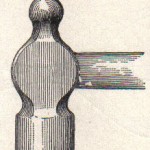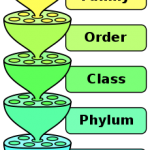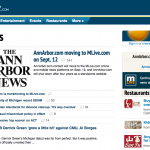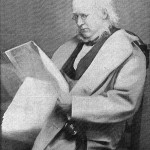13 Sep 2013
These 7 sins aren’t just deadly on social media: Attention, news websites
Steph Parker posted “The 7 new deadly sins of social media” on Socialmedia Today this month. A lot of good advice packed into a relatively short post: Misappropriation Just because something happens doesn’t mean you have to take advantage of it for your brand. There’s a difference between being clever and being annoying, and forcing
12 Sep 2013
If at first they do not learn, train, train again

Here are some words of encouragement for anyone asked to train people in a newsroom: You will fail. Within weeks after your training is complete, you will realize that some people are doing poorly at whatever you taught them. Some are doing the opposite of what you said. And some aren’t doing it at all.
11 Sep 2013
Don’t teach the tool; teach the task

The worst training sessions I’ve had to endure mostly consisted of the so-called trainer plodding through something — let’s say, a website stats tool — in a presentation that was more like an inventory than a lesson. Every button and every option was listed and explained. Two hours later, we students would emerge not much
10 Sep 2013
When training your newsroom, fear the experts

Is your newsroom offering training in digital reporting? Are you considering doing so, and looking for trainers? Here’s my advice: Beware of experts. What I’m talking about are one-topic specialists: the SEO genius, the group that’s produced sterling video documentaries, the social media consultant with 20,000 followers. They may know everything there is to know
06 Sep 2013
Toward a taxonomy of online commenters

After about a week of hard-core comment moderation for a site that gets thousands per week, you begin to recognize individual users by their style. After three months, you can recognize them even when they change user names. After six months, you can sort them into categories and predict, just from two or three initial
05 Sep 2013
How to turn website statistics into newsroom change

Once Stijn Debrouwere got through ridiculing the way the news industry uses website data, he did get to some positive approaches. Here’s one weird trick I learned from Eric Ries. No, it’s actually more like a four-step program. figure out what is important to your organization, what your goals are think of a couple of
04 Sep 2013
5 things I think about the end of ‘AnnArbor.com’

AnnArbor.com, which started four years ago as a one-off experiment and ended up changing all of Advance’s newspapers, is going away as a brand. Its staff will continue to produce online news and the twice-a-week paper (now to be called, once again, The Ann Arbor News). But the site will be folded into the statewide
04 Sep 2013
Why journalists should love live website statistics

I promise that I found a lot to like about Stijn Debrouwere’s speech on website statistics in newsrooms. But before we get to this, another nit. Here’s Debrouwere: Imagine your newsroom has been pumping out articles about the papal election, yet it turns out that the article readers are clicking on is one about the
03 Sep 2013
Let’s not be so quick to trash the website statistics dashboard

Brace yourselves, my fellow journalists. Today we’re going to talk about … numbers. Start with Stijn Debrouwere, who says: Pageviews is a vanity metric: something that looks really important but that we can’t act on and that tell us nothing about how well we’re actually doing. This is from a speech that Mathew Ingram later
02 Sep 2013
The haunts of the bat and the mole: Horace Greeley’s ode to newspapers

I ran across Horace Greeley’s poem when I found an excerpt in the book I mentioned last week, Keen Rafferty’s “That’s What They Said about the Press.” Shockingly to me, it’s been anthologized many times, to judge by the Google Books results. Shocking because, as a journalist-poet, Greeley was no Carl Sandburg. Heck, he was
